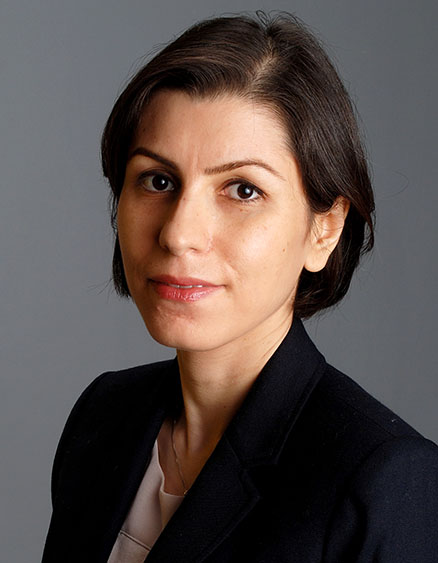
Dr. Sara Abedi, assistant professor and Stephen A. Holditch Faculty Fellow in the Harold Vance Department of Petroleum Engineering at Texas A&M University, recently received the National Science Foundation’s (NSF) Faculty Early Career Development (CAREER) Award. Overseen by the Faculty Early Career Development Program, CAREER awards are one of the NSF’s most prestigious form of recognition and support for up-and-coming researchers who “exemplify the role of teachers/scholars through outstanding research, excellent education and the integration of education and research within the context of the mission of their organizations.”
The award involves monetary support of a five-year research project integrated with education outreach. Such support aims to help build a basis for a lifetime of faculty leadership and direction in the integration of research and education. Abedi's research project, “An Integrated Experimental-Theoretical Framework for Understanding the Multiscale Mechanical Response of Rock-Reactive Brine Interactions,” will study the impact of reactive brine interactions on the properties of rocks at multiple length scales using advanced experimental and modeling techniques.
“Our department is very proud of Dr. Abedi for achieving this very deserved level of recognition," said department head Dr. Jeff Spath. "We look forward to realizing the results of her valuable research this award allows.”
The interaction between rock and reactive brine comes into play in several applications, such as carbon sequestration, reservoir stimulation, stability of cliffs and slopes, dam foundation seepage and creep, contaminant transport, and enhanced geothermal systems, to name a few. While rocks seem to be a stable substance, harsh environments and corrosive brines can erode their mechanical structures. Characterizing and modeling how rock properties change when exposed to these destructive elements and fluids remains a challenge because of the complex microstructure of rocks and the intricacy of rock-fluid interactions.
Abedi's project will acknowledge the multiscale and nonhomogenous aspect of rock-fluid interactions and aims at gaining a fundamental insight of the coupling between the chemical, microstructural and mechanical processes involved. Abedi, an affiliated faculty member in the Zachry Department of Civil and Environmental Engineering, tailored her research for a broad application that aligned with the Civil, Mechanical and Manufacturing Innovation Area within the NSF, particularly for advancing infrastructure resilience and sustainability.
"The research results will lead to better efficiency in resource and energy systems, enhanced resiliency in infrastructure systems and improved safety in fluid or gas storage," said Abedi.
Since the integration of education and research is essential in this CAREER project, Abedi will use a collaborative, interdisciplinary and collective educational and outreach plan. Her goal is to broaden the participation of high school students, and underrepresented undergraduate and graduate students, in chemical and physical sciences through a program she titled “Rocks and Fluids.”
"I hope to reach out to the general public as well," said Abedi. "I am so excited that NSF gave me this opportunity."